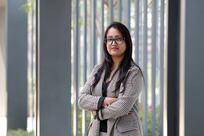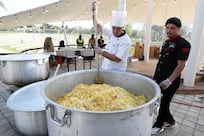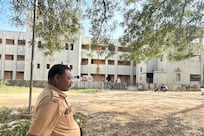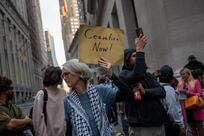MOSCOW // By any country's electoral standards, 90 per cent turnout in an election would be a fantastic display of voter enthusiasm. But in Russia's restive North Caucasus region, it looks almost like voter apathy. Voters in 77 of Russia's 85 regions last weekend cast their ballots in local elections, five of which were for regional parliaments and the rest for mayor and municipal officials. And while voter turnout in four of the regions electing regional legislatures ranged from 30 per cent to 40 per cent, the war-scarred republic of Chechnya in Russia's North Caucasus saw 95 per cent of registered voters cast their ballots, according to the website of Russia's Central Elections Commission. The turnout occurred despite an earthquake hitting Chechnya the day before the ballot killing 13 people. Ramzan Kadyrov, the Chechen president, who, with the Kremlin's backing, has helped stabilise the republic with an iron fist, even said a day before the Oct 12 election that he expected no less than a 100 per cent turnout, "and maybe more", the state-owned RIA-Novosti news agency reported. Not surprisingly, the United Russia party, which is headed by Vladimir Putin, Russia's powerful prime minister, garnered 88.4 per cent in the Chechen election, according to the elections commission's website. Regional and federal officials have consistently defended the incredible turnout figures in the North Caucasus, a southern region ravaged by war and violence over the past 15 years but which the Kremlin has managed pacify to a certain degree by installing loyal local strongmen such as Mr Kadyrov. Russian government officials attribute the phenomenon to a strong tradition in the area of civic responsibility when it comes to voting. The fact that voters overwhelmingly support Kremlin-backed parties and candidates merely reflects citizens' satisfaction with Mr Putin's eight years in office and his hand-picked successor, Dmitry Medvedev, the Russian president, they say. In the Dec 2 federal parliamentary elections, Chechnya saw an astounding 99.5 per cent turnout, with 99.36 per cent of votes going to United Russia. Kremlin critics say such results are laughable and reveal the disregard the Kremlin's proxy rulers in the region have for the electoral process. A French reporter asked Mr Putin, the then Russian president, at an annual news conference at the Kremlin in February whether he thought these figures, and comparable ones in the neighbouring North Caucasus republic of Ingushetia, were "real". Mr Putin redirected the question to a Chechen reporter in the audience. "These are absolutely authentic figures," the Chechen reporter answered, according to a Kremlin transcript. "Personally, all my acquaintances, including myself, voted for United Russia, primarily because we want stability." Curiously, the numbers in North Caucasus republics were on the whole down slightly in the March 2 presidential election, in which Mr Medvedev captured a landslide victory. Chechen turnout in that election was nonetheless incredible: 91.2 per cent of eligible voters cast their ballots, with Mr Medvedev winning 88.7 per cent of the vote. Human rights activists and political analysts said higher-ups in Moscow clearly felt the republics had gone too far with the Soviet-type tallies in the parliamentary elections and told officials in the republics to tone things down for the presidential election - at least a little bit. "Someone realised that those numbers looked ridiculous," said Alexei Malashenko, a political analyst and an expert on the North Caucasus with the Carnegie Moscow Center. "And if you look at the [88.7] per cent Medvedev got in Chechnya, you can't say they were Soviet-like numbers." Josef Stalin claimed a 98.6 per cent turnout in the inaugural elections to the Supreme Soviet, the highest legislative body in the former Soviet Union, in 1937, and elections from the 1950s to the 1970s regularly reached 99.98 per cent. In Supreme Soviet elections in 1979 and 1984, the Soviet government claimed turnouts of 99.99 per cent. Vladimir Churov, the Russian Central Elections Commission chief and a longtime associate of Mr Putin, has consistently and vehemently denied results in regional vote tallies had been manipulated to show an increased turnout. Suggestions in the media of vote-rigging are tantamount to slander, Mr Churov has said. In fact, not all voting anomalies in Russia's North Caucasus end up benefiting Russia's political elite. One polling station in the North Caucasus republic of Dagestan offered some of the more peculiar results in the recent history of Russian electoral politics by not registering a single vote for Mr Medvedev in the March 2 presidential election. According to results posted on the Russian Central Elections Commission website, of the more than 700 ballots cast at a polling station in the Dagestani town of Kizilyurt, 95 per cent went to nominal democrat Andrei Bogdanov, a long-shot candidate widely believed to have been allowed on the ballot as a token liberal candidate. Not a single vote at the polling station went to Mr Medvedev, who garnered 90 per cent in Dagestan and more than 70 per cent across the nation. Nationwide, Mr Bogdanov captured 1.3 per cent of the vote. cschreck@thenational.ae
Quake fails to crush Chechen voters' spirit
By any country's electoral standards, 90 per cent turnout in an election would be a fantastic display of voter enthusiasm.
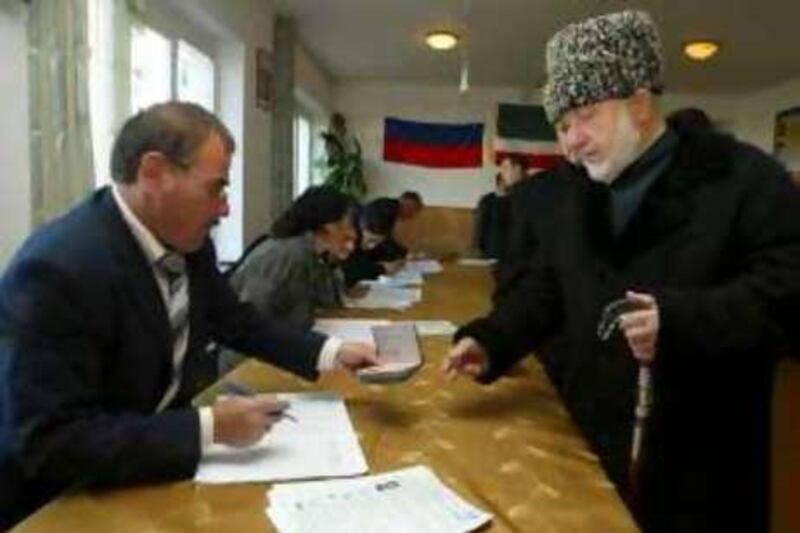
Editor's Picks
More from the national

